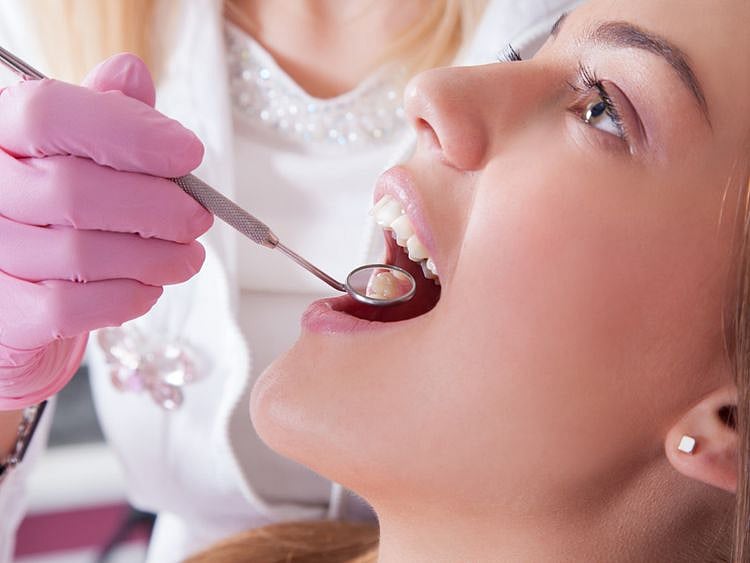Dubai: One of the causes of concern during the fasting hours is dental decay and bad breath. During Ramadan, it is important to be mindful of oral health in order to avoid the side-effects of dehydration, dry mouth and indigestion that could occur due to poor food choices during the eating window, caution dentists.
Fasting during Ramadan can be therapeutic in correcting issues of indigestion, acid reflux, and bad breath - provided people pay attention to maintaining high standards of oral hygiene.
How to keep a check on oral hygiene
Dr Ebadullah Shafi, Cosmetic dentist and clinical head of Tajmeel Dental Centre, Dubai, explained: “Due to long hours of fasting, over-production of acid on an empty stomach and the choice of eating sugary and oily foods during suhour and iftar, imbalance in the internal flora of the oral cavity is quite likely. This can result in mouth dryness, bad breath, plaque build-up and trigger long-term dental damage.”
Dr Suliman Shahin, assistant professor of Orthodontics, IAU College of Dentistry, and Invisalign Academic Faculty, observed that during Ramadan people have a unique opportunity to regulate their eating habits and change their dietary habits, which can greatly help in improving oral hygiene.
Brushing twice a day, keeps plaque away
The basics of oral hygiene begins with the simple act of brushing teeth the right way. Dr Shahin pointed out: “The American Dental Association (ADA) recommends brushing at least twice daily for two minutes with a soft toothbrush and waiting or at least 30 minutes before brushing to allow for acid washout off the teeth. This is true in Ramadan as well. Of particular importance is ensuring to brush after the suhour meal and iftar as well, to help minimise plaque build-up.”
Dr Shafi explained: “Brushing twice is a mechanism to disrupt plaque, which is a sticky film build-up on the teeth from changing to tartar. Plaque is formed when bacteria from sugar and starchy food cause gum diseases and tooth decay. Brushing teeth does not allow the plaque to change to tartar and thereby prevents damage to the teeth. During Ramadan, since people are going to be without food and water for nearly 14-15 hours, they must brush their teeth after suhour and iftar meals”
What is the ideal time to brush teeth?
The ideal brushing time is at least 30 minutes after having main meals. People can also adopt the habit of brushing teeth more than once in these days, to minimise plaque accumulation and control unpleasant mouth odour, said Dr Shahin.
Dr Shafi added: “It is likely that during iftar, an individual might give in to an indulgence of a second meal after the Taraweeh prayers. They must remember to brush their teeth after that meal as well, to keep the oral cavity squeaky clean.”
Choose soft-bristled, herbal toothbrush
Both Dr Shafi and Dr Shahin pointed out that in order to prevent enamel damage, an individual must choose a soft-bristled toothbrush. Moreover, natural herbal toothbrush such as the Miswak twig is not only recommended by religious scholars, but also by the World Health Organisation (WHO) alike. “That is because Miswak has antibacterial properties that prevents plaque build-up and protects the teeth from any enamel damage that can be caused by overbrushing with a hard-bristled brush,” Dr Shahin said.
Brush, floss, rinse
Besides brushing, dentists recommend cultivating a habit of regular flossing. Flossing is recommended to be done at least once a day, as stated by the ADA even during Ramadan to prevent the build of bacteria in the gaps between teeth where food gets lodged,” explained Dr Shahin. Dr Shafi added that rinsing the mouth with a chlorohexidine-based mouthwash would also prevent any kind of bacteria build-up and promote good oral hygiene.
Avoid bad food choices
There is a tendency of people to opt for high-sugar food such as artificial fruit juices, heavy, sugar-rich desserts such as cakes, pastries and candy. Dr Shahin said, it is important for everyone to cut back on this habit. “During Ramadan mealtime, it is important for people to have a well-balanced diet with regulated sugar content. Limit your consumption of sweets. If a person is opting for sweets, it should only be in a small portion after the main course, to minimise rapid acid build-up on teeth and subsequent tooth decay.”
How to avoid bad breath
While fasting, bad odour can be avoided by paying special attention to the brushing, flossing after meals and using a fluoride mouthwash for rinsing. In addition, Dr Shafi added: “Rinsing the mouth during the wadu ritual helps greatly. People can take care not to ingest water, but simple rinsing is a great help in preventing dry mouth, which is a hot-bed for bacterial build-up and tooth decay.”
Tips for good oral hygiene
• Get a full dental check-up done prior to the fasting days. Make sure mouth cavities and gum diseases are not building up as these have a tendency to aggravate during fasts.
• Keep your gastrointestinal tract healthy and take probiotics to improve the gut flora. This will help prevent acid reflux and bad breath.
• Follow a strict brush-floss-rinse routine during the fast.
• Take care to rinse your mouth during wadu, making sure not to ingest water.
• Avoid eating too much processed, oily or sugar-rich food.
Sign up for the Daily Briefing
Get the latest news and updates straight to your inbox
Network Links
GN StoreDownload our app
© Al Nisr Publishing LLC 2026. All rights reserved.
